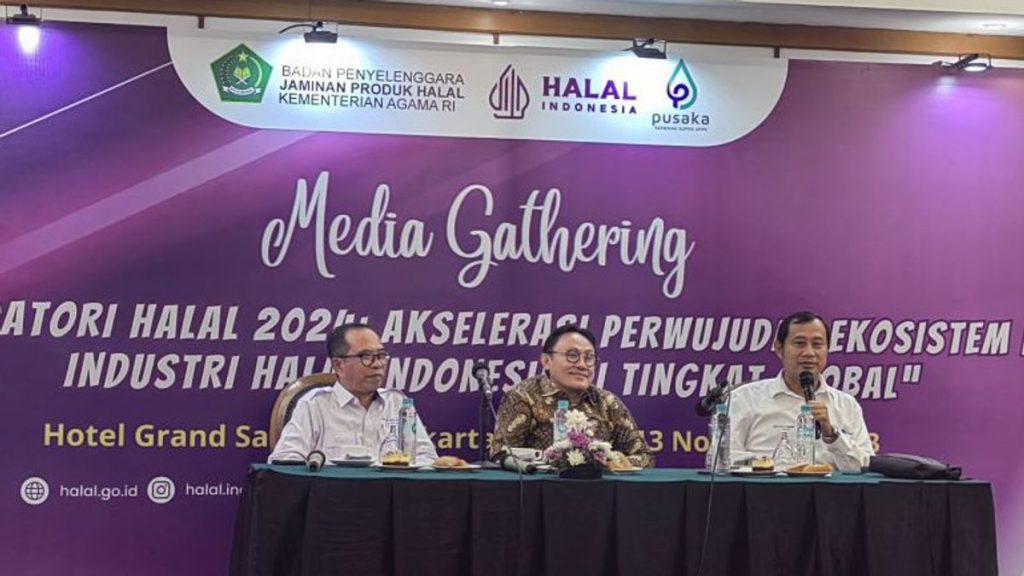
JAKARTA – The Ministry of Religion’s Halal Product Guarantee Administration Agency (BPJPH) ensures that food/drinking and meat raw materials from abroad must be certified halal if they want to be exported and circulated in Indonesia starting October 2024.
“All raw and meat products in October 2024 must be certified halal,” said Head of BPJPH Aqil Irham as reported by ANTARA, Monday, November 13.
Aqil explained that after the halal mandatory is enforced, all food and beverage products starting October 2024 must be certified halal.
According to him, if raw materials and meat such as beef, buffalo, and chicken from abroad are not certified halal, they will be stuck in customs and cannot be circulated in Indonesia.
“In Customs and Excise, you cannot enter. Goods that enter and circulate in Indonesia must be certified halal. Otherwise, they cannot enter,” he said.
Therefore, he said, BPJPH is currently busy with requests for mutual recognition and acceptance (mutual recognition and acceptance/MRA) between foreign halal institutions (LHLN) and BPJPH so that their products can enter Indonesia.
BPJPH will conduct a direct review of the LHLN which proposes mutual recognition and acceptance. The institution must meet the requirements and Indonesian standards related to guaranteeing halal products.
“Therefore, they have a lot to do with us, chasing the time so that their products are stuck cannot enter Indonesia,” he said.
According to him, the MRA process does not only involve foreign halal actors/institutions alone, including the state government concerned.
He gave an example of the governor in South Korea, the Canadian Minister of Trade, and the Australian Government having held a meeting to accelerate the MRA process.
“There are many who have been in touch with us. To anticipate the time limit,” he said.
According to Aqil, the MRA process is also to boost domestic business actors, especially MSMEs, so that as soon as possible carry out halal certification of their products. In addition, it is part of the protection of local products.
“The global halal trend comes from secular countries. They are concerned about halal products. In terms of strictness, whatever procedures, they fulfill. Halal is not merely a religious issue, halal is related to many things such as cleanliness, business, international trade, markets, to reputation,” he said.



